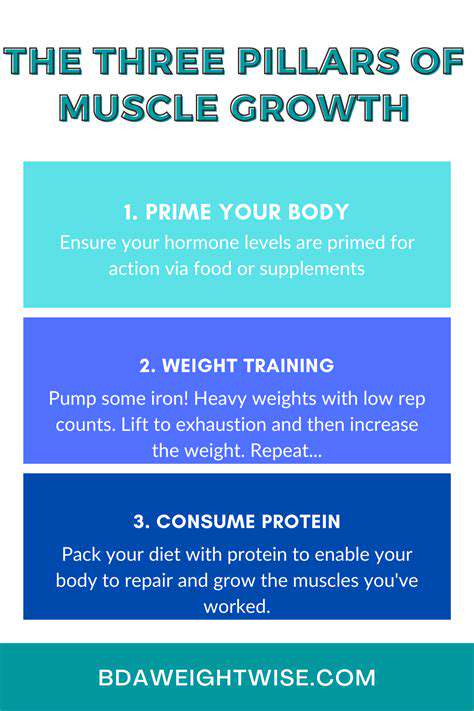Health Tips for Men's Prostate Health
Fruits and vegetables are packed with essential vitamins, minerals, and antioxidants that can help protect the prostate from damage. Citrus fruits, berries, and leafy greens are particularly beneficial, providing valuable nutrients that support optimal prostate function. Incorporating a variety of colorful fruits and vegetables into your daily diet is a simple yet effective way to boost your overall health and support prostate well-being.
A diet rich in antioxidants, found in abundance in fruits and vegetables, can help neutralize harmful free radicals that may contribute to prostate problems. Cruciferous vegetables, such as broccoli and cauliflower, are also known to contain compounds that may help prevent the development of prostate cancer.
Lean Proteins and Healthy Fats
Choosing lean protein sources, such as fish, poultry without skin, and beans, is vital for overall health and prostate function. These protein sources provide essential amino acids necessary for building and repairing tissues, including those in the prostate. Limiting processed meats and red meat can also contribute to better prostate health.
Consuming healthy fats, like those found in avocados, nuts, and fatty fish, can help maintain healthy cell membranes and support hormone balance, which is important for prostate function. While excessive fat intake is detrimental, incorporating healthy fats in moderation is crucial for optimal health.
Dairy and Calcium: Important Considerations
Dairy products and calcium-rich foods play a role in supporting overall health, and maintaining adequate calcium intake is important for bone health. However, some studies suggest a possible link between high dairy consumption and prostate cancer risk. It's important to discuss your specific dietary needs with a healthcare professional.
A balanced approach to dairy and calcium intake, along with adequate vitamin D, is key to maintaining bone health. Consulting with a nutritionist or doctor can help determine the right balance for your individual needs and health status.
Hydration and Fluids: Staying Properly Fueled
Staying properly hydrated is essential for overall health and prostate function. Drinking plenty of water throughout the day helps flush out toxins and supports healthy bodily functions. Avoid sugary drinks and excessive caffeine intake.
Maintaining proper hydration is crucial for a healthy prostate. Water is vital for carrying nutrients to the prostate and flushing out waste products. Excessive alcohol consumption can have adverse effects on prostate health.
The Importance of Regular Check-ups and Screening

Preventive Measures
Regular check-ups are crucial for maintaining good health. They allow for early detection of potential health issues, often before symptoms arise. This early intervention is vital, as many diseases, if caught early, can be treated more effectively and with less severe consequences. Prompt diagnosis and treatment can significantly improve the chances of a positive outcome.
By scheduling regular check-ups, individuals can proactively address potential problems. This proactive approach can lead to a healthier and longer life, enabling you to enjoy the activities you love and maintain your overall well-being. It's important to remember that preventive care is a cornerstone of a healthy lifestyle.
Identifying Potential Issues
Regular check-ups provide a platform for identifying potential issues that might otherwise go unnoticed. This early detection of health concerns allows for prompt intervention and treatment, potentially preventing the development of more serious complications down the line. Early intervention is key to managing chronic conditions effectively.
Through various diagnostic tests and examinations, healthcare professionals can identify subtle indicators that might signal a developing problem. This allows for timely intervention, potentially saving lives and improving quality of life.
Monitoring Health Trends
Check-ups enable the tracking of health trends over time. This longitudinal monitoring allows healthcare providers to identify patterns and potential changes in your health status. This is especially important for people with pre-existing conditions or those who are at higher risk for certain diseases. Regular check-ups offer a roadmap for understanding your body's health trajectory and responding appropriately to any changes.
By monitoring vital signs, blood tests, and other relevant factors, healthcare providers can gain a comprehensive understanding of your overall health. This allows for the identification of potential risks and the implementation of appropriate preventative strategies.
Early Disease Detection
Early detection of diseases is paramount to effective treatment. Many diseases, if identified early, can be managed more effectively, preventing severe complications and improving long-term outcomes. Early diagnosis significantly increases the chances of successful treatment and recovery.
Regular check-ups offer a vital opportunity to identify diseases in their early stages. This allows healthcare providers to intervene promptly and initiate appropriate treatment plans, maximizing the potential for positive outcomes. This approach is often far more effective than treating a disease in its advanced stages.
Addressing Lifestyle Factors
Regular check-ups provide an opportunity to discuss lifestyle factors that could impact your health. Healthcare professionals can offer guidance and support in making healthy lifestyle changes, addressing potential concerns and promoting well-being. This proactive approach to health management empowers individuals to take control of their own health.
During check-ups, doctors can assess your diet, exercise habits, and stress levels. They can provide personalized recommendations and support tailored to your specific needs, helping you make positive changes that can significantly improve your health and well-being.
![Best Meditation Apps for Beginners [2025 Review]](/static/images/26/2025-05/Top3MeditationAppsforBeginnersin2025.jpg)









